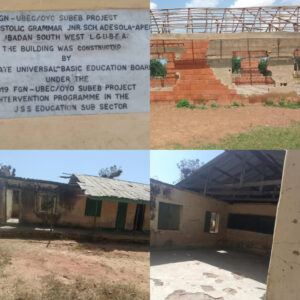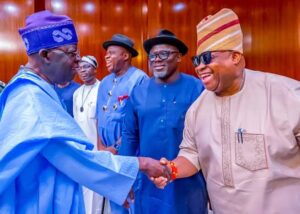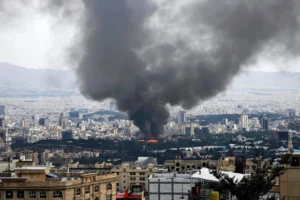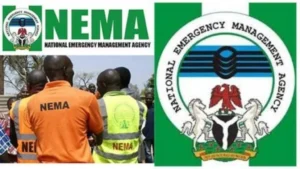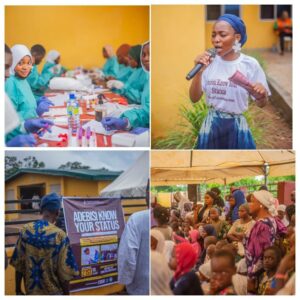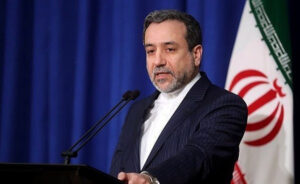
By Tajudeen Habeeb (Tallest)
Kwara State’s political landscape has undergone significant transformation since the historic Otoge movement of 2019, which dismantled the long-standing political dynasty and ushered in the current administration led by His Excellency, Governor AbdulRahman AbdulRazaq.
While the aftermath of Otoge saw internal fractures among comrades who felt entitled to decision-making roles as rewards for their struggle, what many failed to grasp was the Governor’s distinct vision for Kwara—one rooted in moderation, pragmatism, and sustainable development.
While the Otoge comrades are at it, the major opposition, once the unchallenged architects of Kwara’s fate, have struggled to adapt to their new role. Rather than offering substantive alternatives, they’ve fixated on trivialities, such as critiquing the government’s mode of communication. But beyond their noise, Governor AbdulRazaq remains steadfast in delivering his vision for Kwara.
*A Leader with a Clear Vision*
Long before his emergence as Governor, during a private meeting in 2019, Abdulrahman AbdulRazaq shared his concerns about Kwara’s lack of structural planning and decaying infrastructure with me and few others in the room on that faithful day. Today, his urban renewal projects—such as the General Tunde Idiagbon Bridge (Tanke), the Sulu Gambari Bridge (Challenge), construction of the 15-story building Tax house, reconstruction of Ahmadu Bello ways, the remodeling of Post Office to Oja Oba, Yebumot to Oloje road, all equipped with solar street light—stand as testaments to his commitment to transforming Ilorin into a modern, well-planned city.
Governor AbdulRahman AbdulRazaq’s development vision for Kwara State extends beyond the state capital, focusing on rural areas and agrarian communities to unlock business opportunities and improve infrastructure. This is evident in the construction of the 11. 1 KM Osi-Obbo Aiyegunle Road, Baruten Local Government’s first internal tarred road, Ajase Ipo to Oke-Iya road linkage project completed to boost economic activities in the area.
These initiatives demonstrate AbdulRazaq’s commitment to developing Kwara State’s infrastructure, economy, and agricultural sector, improving residents’ lives across the state.
*Revolutionizing Healthcare*
The Governor also expressed deep concern over Kwara’s high maternal mortality rates and poor healthcare access. His administration’s response has been multifaceted: Massive Renovations: Overhauling primary healthcare centers across the state. Equipping hospitals with 24-hour independent power sources. Staff Recruitment to address manpower shortages by employing thousands of healthcare workers.
However, his most groundbreaking move is the recent Memorandum of Understanding (MOU) with private universities—Thomas Adewumi Oko University and Al-Hikmah University—to convert Omu-Aran General Hospital and Alagbado Specialist Hospital into “Teaching Hospitals”. This partnership will in no doubt elevate healthcare standards in the state.
This new partnership builds on the upgrade of the General Hospital Ilorin to a teaching hospital a few years ago, which now serves Kwara State University Malete’s medical science students. The move has led to improved healthcare service delivery and expertise since the upgrade.
Teaching hospitals require advanced facilities and expert personnel. This is what Omu Aran General Hospital and Alagbado specialist Hospital will witness thereby, ending long distance medical tourism for residents in these areas at affordable rates.
The teaching Hospitals will attract top medical professionals to Kwara, which promises to improve healthcare service delivery for the state. Isn’t that a vision envisioned and living it?
*Sustainable and Inclusive Governance*
Governor AbdulRazaq’s leadership is defined by purpose, not propaganda. Whether issuing directives via WhatsApp, Zoom, or traditional memos, what matters is that Kwara is progressing.
Just as the ousted dynasty failed to evolve in its political activities—refusing to adapt to new leadership and governance approaches—so too does its flawed judgment of today’s digital-age governance. In an era where even court rulings are delivered via Zoom, they hypocritically fault a governor for issuing instructions via WhatsApp, a platform they themselves use to make decisions that shape their lives. Isn’t that the height of double standards
His Excellency’s policies so far prioritize: “Economic growth” through infrastructure and private-sector partnerships. “Improved living standards” (healthcare, education, and social welfare) as exemplified by the massive investments in these sectors since his assumption of office, “Environmental sustainability” (urban planning and green and clean initiatives).
While critics remain distracted by political theatrics, AbdulRahman AbdulRazaq continues to steadily live his vision for a renewed, healthier, and more prosperous Kwara. The evidence of his effectiveness isn’t found in rhetorical flourishes but in tangible improvements to daily life—the modernized roads residents travel, the enhanced hospitals they visit, and the expanding opportunities available to Kwarans.
These concrete achievements, rather than political posturing, are what ultimately matter in evaluating the administration’s impact on Kwara State’s development trajectory.
While they remain fixated on trivialities, AA is living his vision for the progress of Kwarans.

